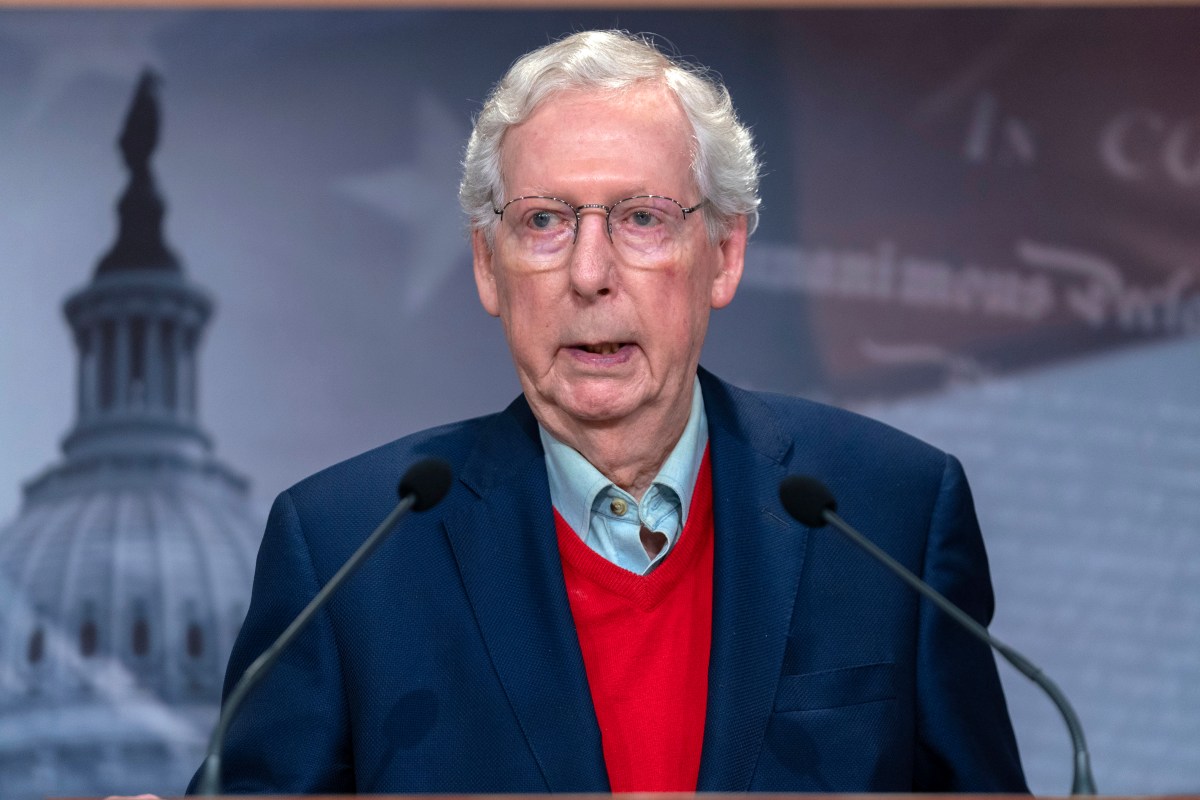Senator McConnell’s Call to Uphold Polio Vaccination Programs
In a recent statement, Senator Mitch McConnell raised concerns regarding proposals that threaten to dismantle polio vaccination programs across the United States. McConnell’s remarks highlight a growing anxiety among public health advocates about the potential resurgence of polio—a disease that was once on the brink of eradication thanks to widespread immunization efforts. This article will delve into McConnell’s concerns, the status of polio vaccination programs, and the broader implications for public health and policy.
The Importance of Polio Vaccination
Polio, or poliomyelitis, is a highly infectious viral disease that can lead to paralysis and even death. The introduction of the polio vaccine in the mid-20th century drastically reduced the incidence of the disease, making it a rare occurrence in many parts of the world. According to the World Health Organization (WHO), polio was eliminated in the United States in 1979, thanks to comprehensive vaccination campaigns. However, the threat of polio resurfaces as vaccination rates decline in certain communities.
McConnell’s statement reflects a crucial understanding of the role that vaccination plays in preventing the resurgence of infectious diseases. He emphasized that dismantling existing vaccination programs could reverse the decades of progress made against polio. The senator’s concerns are not unfounded, as recent outbreaks in various regions of the world have shown that polio can reemerge if vaccination coverage drops below critical thresholds.
Current Trends in Vaccination Rates
One of the most alarming trends in recent years has been the decline in vaccination rates for various diseases, including polio. Factors contributing to this decline include:
- Vaccine Hesitancy: Misinformation about the safety and effectiveness of vaccines has led some parents to refuse vaccinations for their children.
- Access Issues: Economic barriers and lack of access to healthcare can hinder vaccination efforts, particularly in low-income communities.
- Policy Changes: Legislative efforts that aim to reduce funding or support for public health initiatives can adversely affect vaccination programs.
In 2020, the Centers for Disease Control and Prevention (CDC) reported a significant decrease in routine immunization services due to the COVID-19 pandemic, which further complicated the landscape for vaccinations. As healthcare systems prioritized COVID-19 responses, routine vaccinations for many diseases, including polio, saw a drop in coverage.
Recent Outbreaks and Global Context
Globally, polio remains endemic in only a few countries, primarily Afghanistan and Pakistan, but outbreaks have been reported in areas where vaccination coverage has waned. For instance, the United Kingdom reported a small outbreak of vaccine-derived poliovirus in 2022, leading health authorities to initiate emergency vaccination campaigns to prevent further spread.
McConnell’s alarm about dismantling vaccination programs resonates with these global challenges. The interconnectedness of health issues means that a decrease in vaccination efforts in one region can have ripple effects worldwide. Public health experts are increasingly realizing that vigilance is necessary to maintain herd immunity and prevent outbreaks.
Broader Implications of Dismantling Vaccination Programs
The implications of dismantling polio vaccination programs extend beyond just the risk of polio resurgence. They encompass a range of public health issues, including:
- Increased Healthcare Costs: Treating outbreaks of polio and other vaccine-preventable diseases can be significantly more costly than maintaining vaccination programs.
- Public Health Infrastructure: Eroding vaccination programs can weaken the overall public health infrastructure, making it harder to respond to new health threats.
- Community Trust: Disbanding vaccination initiatives can erode trust in public health authorities, making it more challenging to promote health initiatives in the future.
The Role of Policy and Advocacy
To counter the threats posed by the dismantling of vaccination programs, strong advocacy and policy measures are necessary. Senator McConnell’s stance is a call to action for lawmakers and public health advocates to reinforce vaccination efforts. Strategies to ensure the sustainability of vaccination programs may include:
- Educational Campaigns: Providing accurate information about vaccine safety and efficacy can combat misinformation and encourage vaccination.
- Funding Support: Allocating resources to public health initiatives that promote vaccination can help maintain high immunization rates.
- Community Engagement: Involving community leaders and organizations in vaccination campaigns can address access issues and build trust.
Conclusion: A Collective Responsibility
Senator McConnell’s warning about the dangers of dismantling polio vaccination programs serves as a crucial reminder of the collective responsibility to protect public health. Vaccination is not just an individual choice; it is a community obligation that safeguards society as a whole. As we navigate the complexities of public health in a post-pandemic world, it is imperative to prioritize and strengthen vaccination efforts, ensuring that diseases like polio remain a relic of the past rather than a looming threat.
Continued vigilance, advocacy, and commitment to public health will be essential in preventing the resurgence of polio and maintaining the progress achieved through decades of immunization efforts. The road ahead requires a united front to ensure that all individuals, especially the most vulnerable, have access to lifesaving vaccines.
See more WebMD Network



